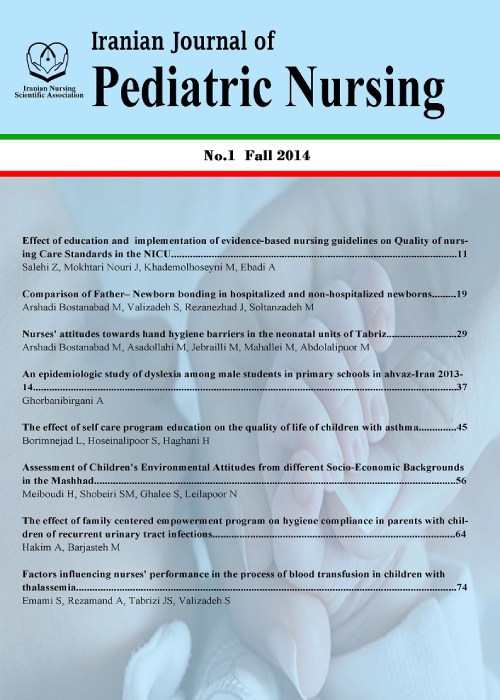The role of olfactory stimulations on physiological parameters of preterm infants:A Systematic Review
With progress in the medical care of premature infants, the survival rate of these infants has increased. Physiological indicators of premature infants such as breathing rate, blood oxygen saturation, and heart rate indicate their health status and changes in them are the most important and the first sign of change in health. One of the interventions that have been carried out in recent years in premature babies; is olfactory stimuli. However, no summary of the effect of these interventions on physiological indicators has been done so far, so this study was conducted with the aim of reviewing and summarizing the effect of this intervention on the physiological indicators of premature infants.
A search was performed using PICO search terms for relevant studies. The research question was as follows: "What effect does olfactory stimuli have on blood oxygen saturation and heart rate in premature infants?" An extensive search was conducted in the electronic databases of PubMed, Cochrane Library, Web of Science, and Scopus until December 20, 2021, without a time limit. This systematic review study was organized based on the Cochrane manual and using the PRISMA statement. The inclusion criteria were original research studies that implemented olfactory interventions in premature infants. Pilot studies due to the different sample size from original research studies, also if an article is published in several sources, an article published in a source with less credibility than the study, non-English language articles, letters to the editor, and olfactory interventions on term infants and children, are excluded from the study.
Out of a total of 272 studies, 8 articles that met the inclusion criteria were reviewed. Out of 8 extracted studies, 2 semi-experimental studies and 6 clinical trial studies were randomized. Also, 50% (4 cases) of average quality and 50% of articles (4 cases) were strong. Aromatherapy with the smell of breast milk, vanilla, and amniotic fluid caused changes in blood oxygen saturation and heart rate of premature infants. Among the many olfactory stimuli, the use of vanilla was the most effective.
Olfactory stimuli are effective in improving oxygen saturation and stabilizing heart rate in premature infants. Because it is an easy and uncomplicated intervention and is effective in stabilizing the physiological condition of premature infants; it is recommended to use this method for nurses in the neonatal intensive care unit. Of course, due to the fact that the number of samples and few studies have been done in this field, caution should be used in interpreting the results.
- حق عضویت دریافتی صرف حمایت از نشریات عضو و نگهداری، تکمیل و توسعه مگیران میشود.
- پرداخت حق اشتراک و دانلود مقالات اجازه بازنشر آن در سایر رسانههای چاپی و دیجیتال را به کاربر نمیدهد.



